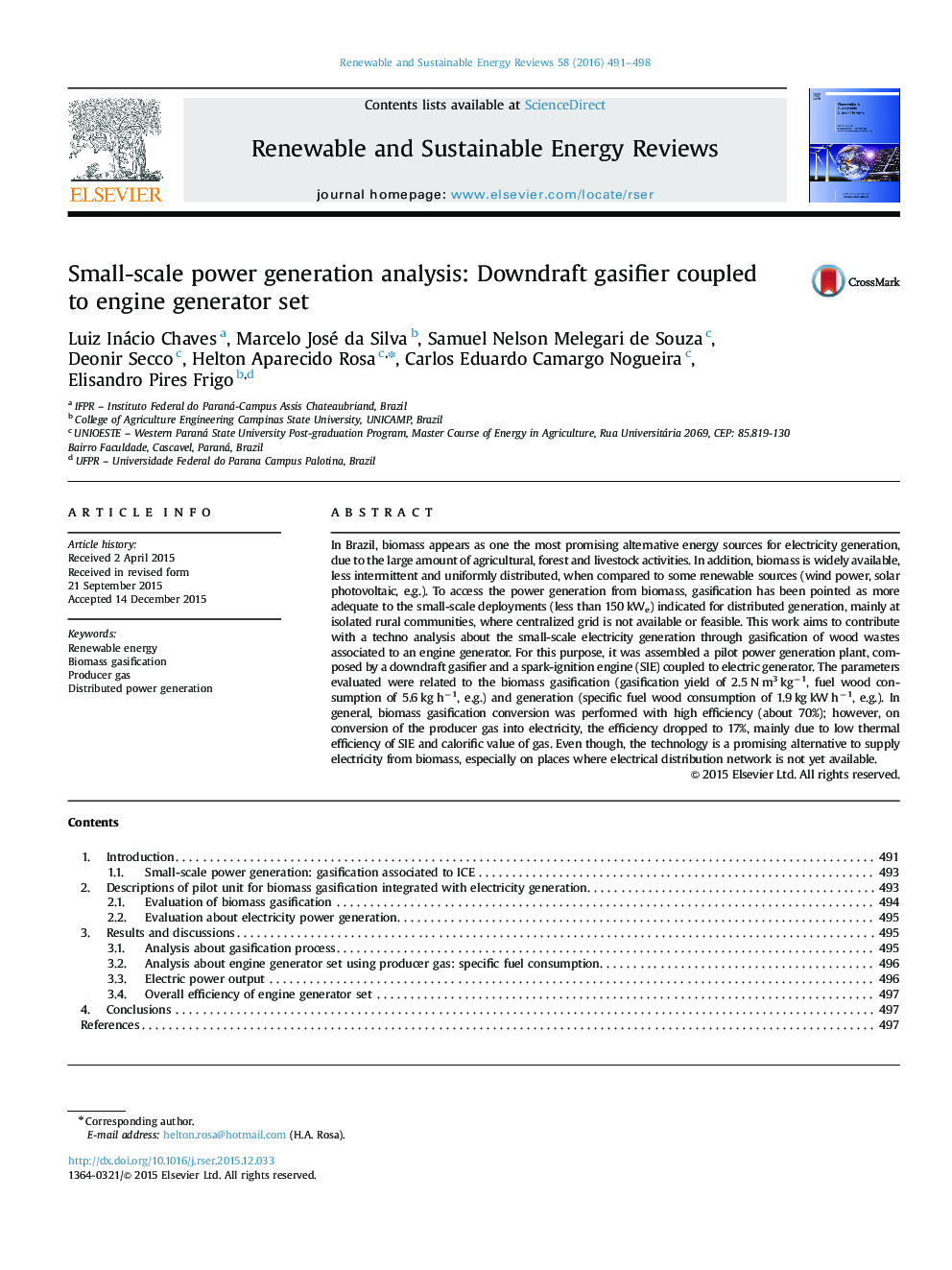| Article ID | Journal | Published Year | Pages | File Type |
|---|---|---|---|---|
| 8114169 | Renewable and Sustainable Energy Reviews | 2016 | 8 Pages |
Abstract
In Brazil, biomass appears as one the most promising alternative energy sources for electricity generation, due to the large amount of agricultural, forest and livestock activities. In addition, biomass is widely available, less intermittent and uniformly distributed, when compared to some renewable sources (wind power, solar photovoltaic, e.g.). To access the power generation from biomass, gasification has been pointed as more adequate to the small-scale deployments (less than 150 kWe) indicated for distributed generation, mainly at isolated rural communities, where centralized grid is not available or feasible. This work aims to contribute with a techno analysis about the small-scale electricity generation through gasification of wood wastes associated to an engine generator. For this purpose, it was assembled a pilot power generation plant, composed by a downdraft gasifier and a spark-ignition engine (SIE) coupled to electric generator. The parameters evaluated were related to the biomass gasification (gasification yield of 2.5 N m3 kgâ1, fuel wood consumption of 5.6 kg hâ1, e.g.) and generation (specific fuel wood consumption of 1.9 kg kW hâ1, e.g.). In general, biomass gasification conversion was performed with high efficiency (about 70%); however, on conversion of the producer gas into electricity, the efficiency dropped to 17%, mainly due to low thermal efficiency of SIE and calorific value of gas. Even though, the technology is a promising alternative to supply electricity from biomass, especially on places where electrical distribution network is not yet available.
Related Topics
Physical Sciences and Engineering
Energy
Renewable Energy, Sustainability and the Environment
Authors
Luiz Inácio Chaves, Marcelo José da Silva, Samuel Nelson Melegari de Souza, Deonir Secco, Helton Aparecido Rosa, Carlos Eduardo Camargo Nogueira, Elisandro Pires Frigo,
